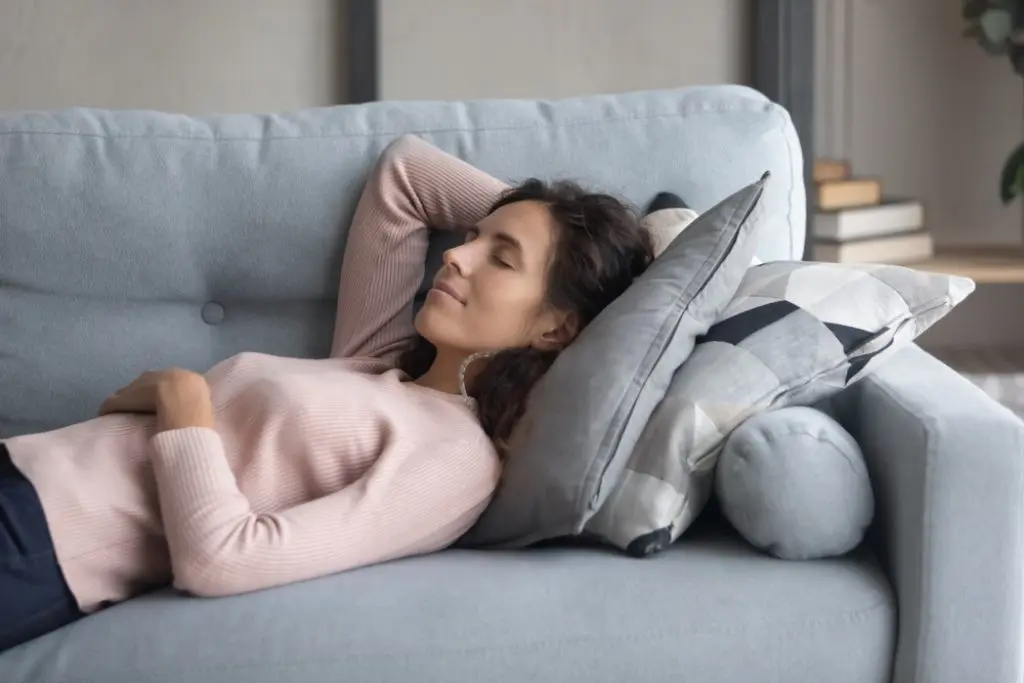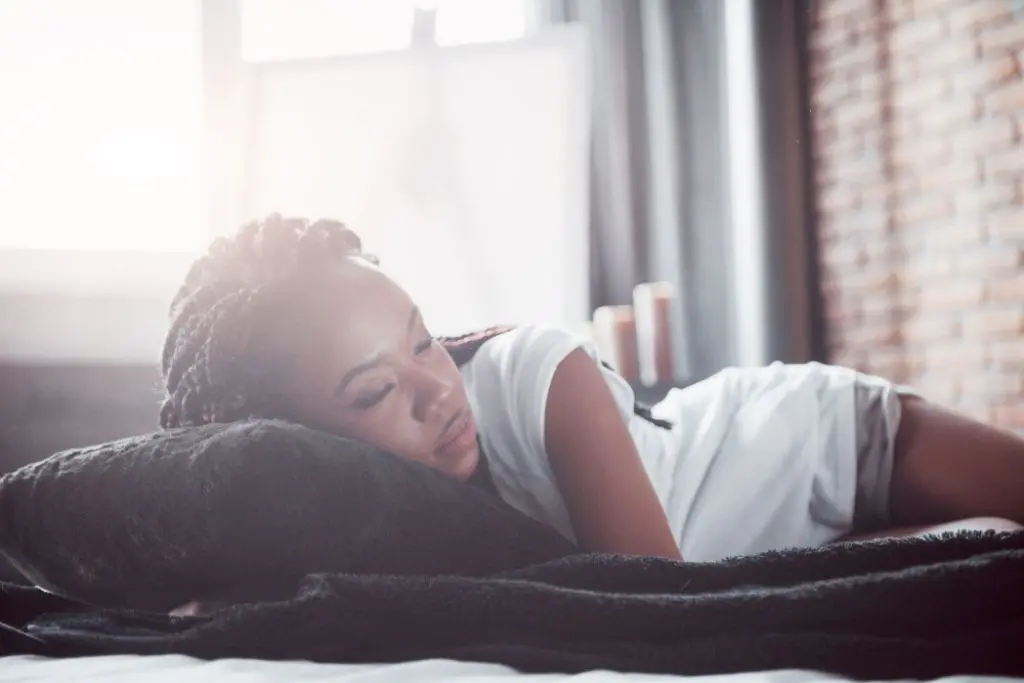Zzz… Are Naps Good For You?

November 24, 2022 - Updated December 19, 2023

Are you someone who has a regular nap during the day? Or perhaps you’ve been thinking about trying a siesta but have been wondering if the benefits of napping are actually backed by science. Well, you’re about to find out!
According to the National Sleep Foundation, about one third of adults in the US have a daily nap, and while not everyone needs to nap, a quick snooze can indeed provide many benefits for your mind and body. But there are a few things you need to know before you doze off, because not every nap will leave you feeling better.
Are naps good or bad?
The short answer is, it depends.
Whether naps will benefit you depends on the person, how long you nap for, what time of day it is, and your reasons for napping in the first place.
Although napping is a regular part of life in many cultures and offers various benefits (which we will get into shortly), it’s definitely not for everyone.
According to Mayo Clinic, some people have difficulty sleeping during the day, and napping at the wrong time of day or for too long can backfire. If you nap for too long, you’re likely to feel groggy afterwards, and if you nap too late in the day you may have trouble sleeping at night. With so many people loving the bed-rotting trend, it's important to make sure your bed habits are making you happier and healthier.

Benefits of power naps
Having a short nap can have several benefits and be a great way to refresh and recharge in a short space of time! Besides reducing fatigue, the National Sleep Foundation says a nap can also help to improve:
Relaxation
Mood
Performance
Memory
Reaction time
Alertness
A 2021 systematic review and meta-analysis explored the effects of a short daytime nap on cognitive performance across 11 studies with a total of 381 participants, finding improvements in the nap group following their sleep, especially for alertness. Cognitive performance also improved if the nap was taken in the early afternoon, before 1 pm.
These findings were supported by a similar 2021 systematic review, exploring the benefits of daytime naps on physical and cognitive performance in physically active participants. Almost all 18 studies reviewed confirmed the benefits, showing improvements in short-term physical performance, endurance, skills, reaction time, attention and short-term memory.
Another 2019 study published by the Sleep Research Society investigated the effects on long-term memory of taking a daytime nap compared to taking a break or spending that extra time cramming. When subjects were tested 30 minutes after learning, cramming and napping both led to significantly better memory than taking a break, but interestingly, this advantage only remained a week later for those who took a nap!
Further 2019 research has shown a lower risk of cardiovascular disease events for those who nap once or twice a week, and data from a 2015 randomised controlled trial suggests positive effects of napping on stress and immunity, too.

When are naps bad for you?
While there is nothing wrong with a short nap, Cleveland Clinic explains that taking long naps or napping later in the day can lead to sleep inertia or grogginess, or interfere with your nighttime sleep and cause a disrupted sleep cycle.
For some people, take shift workers or mums with babies for example, naps are an essential and restorative way to start alert and energised. On the other hand, if you have a consistent schedule and need a regular nap because you constantly feel tired, you might need to assess how much sleep you’re getting or if there may be another reason why you don’t have enough energy. If you get plenty of quality sleep and still need regular naps, this could be something to discuss with your healthcare provider. A nap should be for a boost of energy and focus, not as a way to make up for lost sleep!
Harvard Health highlights that needing more sleep during the day can be a sign you’re not getting enough sleep at night or your sleep is poor quality, and deficient sleep is associated with a higher risk of developing chronic conditions. The CDC (Centres for Disease Control and Prevention) says these can include type 2 diabetes, obesity, heart disease, high blood pressure, and stroke.

Top tips: How to take a nap
Nap instructions might sound a bit silly (how hard can it be?), but having an energising nap isn’t actually as simple as falling asleep whenever you feel tired and hoping for the best. Luckily, all of our sources agree on napping best practices. Here’s a few things to remember to ensure you reap the benefits next time you nod off:
Keep it short! 15-20 minutes is the perfect length to allow you to rest and enter the first two lighter stages of sleep without entering the deep stages of sleep (being woken during deep sleep is when you tend to feel groggy!). Set an alarm for yourself to make sure you don’t oversleep.
Time it right. Nap in the early afternoon - after lunch but before 3 pm is generally the sweet spot when your body has a natural circadian dip. Remember, late afternoon naps can interfere with your nighttime sleep.
Get comfortable. Nap in a dark, quiet, cool and comfortable space to allow you to fall asleep faster and remain asleep without interruptions until your alarm goes off. Wear an eye mask or earplugs if it will help.
Don’t snooze! Get up as soon as your alarm goes off to avoid feeling sleepy.
Plan ahead. If you’re having a nap to recharge before something important, allow yourself enough time to wake up. Stretching, walking or going outside for fresh air and sunshine can all help you to feel more alert.
Consider caffeine. If you’re napping because you want a boost of energy, you can also try drinking caffeine just before your nap. The Sleep Foundation says that because the effects of caffeine don’t kick in until about 30 minutes after consumption, having caffeine right before your nap can increase energy and alertness around the time you wake.
Experiment! It might take some trial and error to find what works best for you when it comes to your nap duration, location and time of day.
Need more sleep? If you’re feeling very tired and need a longer nap before an activity such as a late work shift, studying or a long drive, 60-90 minutes is recommended. This will be enough time for you to have deep, slow-wave sleep, but wake you up in the lighter stages. A medium length of around 45 minutes is not recommended as you’re more likely to be woken during deep sleep and feel groggy.
Nodding off and having a nap during the day can be a blessing or a curse, it all depends on how and why you do it. Remember these tips and tricks and you’ll be reaping the benefits in 20 minutes flat!

A more empowered you starts with Sweat, and our editorial team is here to bring you the latest fitness tips, trainer recommendations, wellbeing news, nutritional advice, nourishing recipes and free workouts.
* Disclaimer: This blog post is not intended to replace the advice of a medical professional. The above information should not be used to diagnose, treat, or prevent any disease or medical condition. Please consult your doctor before making any changes to your diet, sleep methods, daily activity, or fitness routine. Sweat assumes no responsibility for any personal injury or damage sustained by any recommendations, opinions, or advice given in this article.
Wellbeing